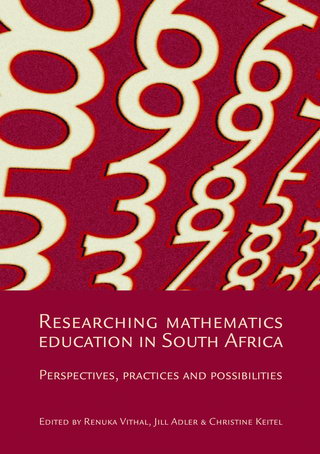 The mathematics education research community in South Africa has grown markedly over the past decade. Key educational concerns have been subjected to systematic study and, increasingly, researchers have become established nationally and internationally. The papers brought together in this book capture some of this growth in mathematics education research in South Africa – in both human and knowledge resource terms. The authors of the various chapters are located across a range of institutional settings and they address a healthy diversity of interest and concerns. While many of the issues raised are resonant with issues in the wider field, each chapter, in one way or another, brings the specificity of the South African context to the fore, and so shapes the questions asked and illuminates the problems studied in particular ways. In bringing together these discussions of research issues in this book, we hope, indeed intend, that we have produced a collection that will be not only a resource for graduate students, and those involved in research and policy development and implementation in South Africa, but will also be of value in the wider international field of mathematics education research.
The mathematics education research community in South Africa has grown markedly over the past decade. Key educational concerns have been subjected to systematic study and, increasingly, researchers have become established nationally and internationally. The papers brought together in this book capture some of this growth in mathematics education research in South Africa – in both human and knowledge resource terms. The authors of the various chapters are located across a range of institutional settings and they address a healthy diversity of interest and concerns. While many of the issues raised are resonant with issues in the wider field, each chapter, in one way or another, brings the specificity of the South African context to the fore, and so shapes the questions asked and illuminates the problems studied in particular ways. In bringing together these discussions of research issues in this book, we hope, indeed intend, that we have produced a collection that will be not only a resource for graduate students, and those involved in research and policy development and implementation in South Africa, but will also be of value in the wider international field of mathematics education research.
What this book has come to be and represent is also a function of how it came into being. The idea for the book emerged some time ago, at the University of Durban-Westville (UDW), when the Faculty of Education developed a proposal in support of Professor Christine Keitel for the (National Research Foundation) NRF-Humboldt scholarship. Christine Keitel is well known for bringing collections of research together into handbooks that have enabled the growth of the international mathematics education community. Her expertise in assisting the community here to collect developing experience into a resource for wider dissemination was one key contribution identified as something that she could offer, should she win the award.
And she did. The NRF-Humboldt scholarship is a prestigious award, and this was the first time it was made not only to a Faculty of Education, but also to a historically disadvantaged university. Christine’s input in the conceptualisation of this book and her assistance in its coming to fruition have been a critical part of its development. We have all benefited from the time Christine has spent in South Africa as a result of the award, and these benefits have extended beyond UDW and the development of this book.
A first step in its development, and indeed one of the first tasks that Christine undertook on her visit here, was a review of all the conference proceedings of the Southern African Association for Research in Mathematics and Science Education (SAARMSE) and which later became the Southern African Association for Research in Mathematics, Science and Technology Education (SAARMSTE) as a means of beginning to conceptualise a book about research in mathematics education in South Africa. Some of her reflections on this task are captured in the Afterword to this collection, as an outsider’s perspective on South African mathematics education research. Her initial thinking, however, formed the basis for conversations between us as co-editors and enabled us to generate an overall conception for a book and so start the process of soliciting papers. We simultaneously sent out a call (extending here as widely as possible), and invited particular people to respond to the call.
The rest is history. The authors who, over time, developed and reworked chapters have not only contributed to the realisation of this initial goal, but each has been enormously patient with a process that has taken longer than we had initially hoped. We thank you! As editors, our task was to work to shape a book, to construct an overall coherence across diverse chapters, while enabling individual researchers and their diverse interests, styles and orientations to come to the fore. We trust we have done justice to this dual task.
The publishing of academic texts is a financially fraught undertaking, here and elsewhere. We were, however, determined that the book be published here, carrying a South African stamp on all its features. This book appears through a generous grant from the National Research Foundation for its origination costs, and thanks to the interest of the Human Sciences Research Council in seeing such work come to be part of the public domain. We are most grateful to both these organisations. In particular, we thank Beverly Damonse for her vision and response from the NRF, and John Daniel and Garry Rosenberg of the HSRC.
Renuka Vithal
Jill Adler
Christine Keitel
01
Jan
2005